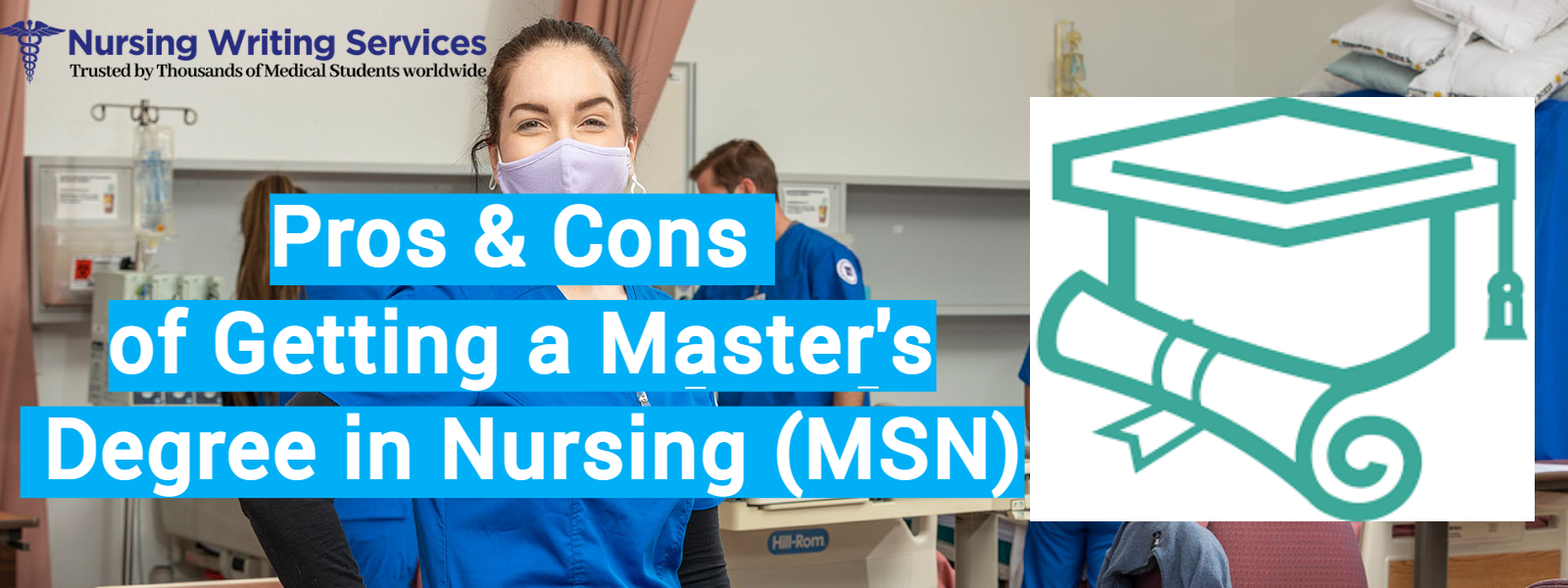
Pros & Cons of Getting a Master's Degree in Nursing (MSN)
Nursing is a rapidly growing field, with a constantly evolving set of challenges and opportunities. As such, many nurses are considering getting a Master's Degree in Nursing (MSN) to help advance their careers and increase their earning potential. While there are certainly advantages to getting an MSN, there are also some potential drawbacks that should be considered. In this blog post, we'll explore some of the pros and cons of getting a Master's Degree in Nursing.
Pros of Getting an MSN
- Increased Earning Potential: One of the biggest advantages of getting an MSN is the potential for increased earning power. According to the Bureau of Labor Statistics, nurses with a Master's Degree earn an average of $17,000 more per year than nurses with just a Bachelor's Degree.
- More Career Opportunities: With an MSN, nurses have a wider range of career opportunities available to them. They can become nurse practitioners, clinical nurse specialists, nurse anesthetists, nurse midwives, or nurse educators, among other roles. These positions often come with higher salaries and more responsibilities.
- Advanced Knowledge and Skills: A Master's Degree in Nursing provides nurses with advanced knowledge and skills that can help them provide better care for their patients. They learn about complex health issues, evidence-based practice, healthcare leadership, and healthcare policy.
- Professional Recognition: Nurses with an MSN are recognized as experts in their field and are often viewed as leaders in healthcare. This recognition can help nurses gain respect and credibility among their peers.
- Personal Satisfaction: Getting an MSN can be a personally fulfilling experience. Nurses who pursue advanced degrees often feel a sense of accomplishment and pride in their achievements. They may also experience greater job satisfaction as they take on new challenges and responsibilities.
Cons of Getting an MSN
- Cost: One of the biggest disadvantages of getting an MSN is the cost. Graduate programs can be expensive, and many nurses may need to take out loans to cover the cost of tuition and other expenses. This can leave nurses with a significant amount of debt after graduation.
- Time Commitment: Pursuing an MSN requires a significant time commitment. Many programs take two to three years to complete, and nurses may need to balance coursework with work and family responsibilities. This can be challenging, especially for nurses who are already working full-time.
- Limited Flexibility: Some MSN programs have rigid schedules and require students to attend classes at specific times. This can be difficult for nurses who work irregular schedules or who live far from the school.
- Increased Responsibility: With an MSN comes increased responsibility. Nurses in advanced practice roles have more autonomy and are often responsible for making complex decisions. This can be stressful and overwhelming for some nurses.
- Narrowed Focus: Pursuing an MSN requires nurses to specialize in a particular area of nursing. While this can be beneficial for career advancement, it can also limit the nurse's scope of practice and may make it more difficult to switch to a different area of nursing in the future.
Conclusion
Getting a Master's Degree in Nursing can be a great way for nurses to advance their careers, increase their earning potential, and gain advanced knowledge and skills. However, there are also potential drawbacks to consider, such as the cost, time commitment, and increased responsibility. Ultimately, the decision to pursue an MSN should be based on the individual nurse's goals, interests, and resources. By carefully weighing the pros and cons, nurses can make an informed decision about whether an MSN is the right choice for them.

